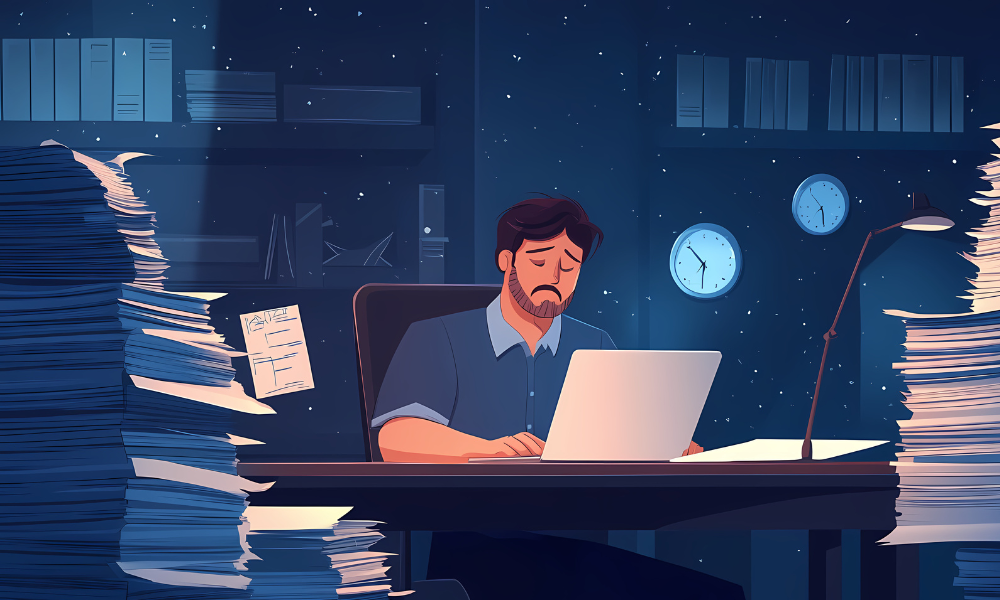
'The modern workday for many has no clear start or finish,' Microsoft warns

The modern workday has extended far beyond the regular working hours, according to new findings from Microsoft, which called for an end to employees' new "infinite workday."
Microsoft discovered this emerging trend after analysing globally aggregated and anonymised Microsoft 365 productivity signals, ending in mid-February.
This "infinite workday" begins as early as 6am, with 40% of employees are already reviewing their email for the day's priorities, according to Microsoft's report.
"It starts early, mostly in email, and quickly swells to a focus-sapping flood of messages, meetings, and interruptions," it said.
This workday stretches into the evening, as meetings after 8pm have also gone up 16% year-over-year.
An average employee also now sends or receives more than 50 messages outside of core business hours. By 10pm, 29% are diving back into their inboxes, according to the report.
The "infinite workday" even bleeds into weekends, with nearly 20% of employees checking their email before noon on Saturday and Sunday, as well as over five per cent back in email on Sunday evenings.
"This points to a larger truth: the modern workday for many has no clear start or finish," the report read.
Within that infinite workday, employees are also struggling to keep up with the demands at work.
According to the report, an average employee receives 117 emails daily, with most of them skimmed in under 60 seconds. Mass emails with more than 20 recipients are also up seven per cent in the past year.
"The inbox may still be the front door to work, but too often it opens to a flood of unprioritised chaos," it said.
By 8am, Microsoft Teams becomes the dominant communication channel, with an average employee receiving 153 messages on the platform every weekday.
Messages per person have also increased six per cent year-over-year globally, with more than 20% surges recorded in Central and Eastern Europe, the Middle East, and Africa.
"Each email or message notification may seem small, but together they can set a frenetic tempo for the day ahead," the report said.
Employees' prime focus times are also interrupted by meetings, with 50% of them taking place between 9 and 11am as well as 1 and 3pm.
The report further pointed out that employees "deeply" feel the impact of digital noise, with meetings, emails, or notifications interrupting them every two minutes.
"For many, the workday now feels like navigating chaos — reacting to others' priorities and losing focus on what matters most."
Employees are struggling under the pressure of the "infinite workday," with a Microsoft report finding that one in three employees said the pace of work in the past five years has made it impossible to keep up.
"The signals are clear: it's time to break the cycle," the report said.
AI can give organisations the leverage to redesign the rhythm of work and fix the infinite workday, according to Microsoft.
The technology can help make the Pareto Principle possible, allowing employees to focus on 20% of work that delivers 80% of the outcomes.
Being an "agent boss" who can utilise AI to work smarter can help, Microsoft added.
"The future of work won't be defined by how much drudgery we automate, but by what we choose to fundamentally reimagine," it stressed.